Its all fun and games until the Canadians show up.
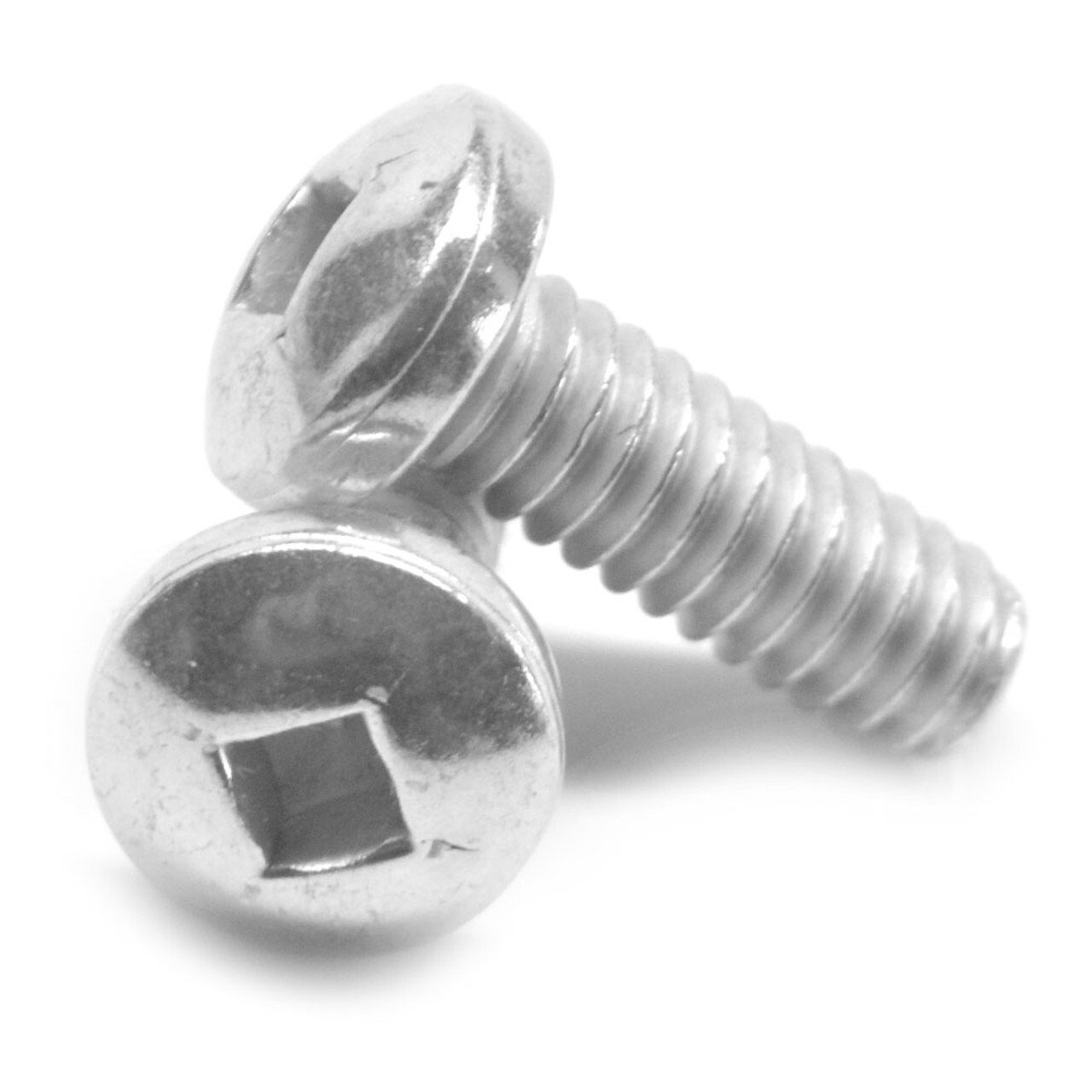
As an American, we made a mistake in not adopting those. Torx or whatever isn’t even as good.
Torx is better than whatever this Canadian abomination is. You’d only put pressure on the corners in a realistic setting. These would get rounded so fast unless they are massive, like on some differentials or gearbox oil drains.
This guy mechanics
Indeed torx is so good because it attempts to maximize the surface where pressure is applied to. This is good on smaller sized bolts that are more prone to being rounded, but especially amazing when removing bolts that may have been exposed and potentially corroded
Hex was for that before.
Yeah, hex is very nice but torx is improvement over it.
I have not checked on it, but I’m like 97.25% sure wood screws jumped from Philips to torx however because of corrosion resistance. Hex is very easy to round already as is on smaller sizes, but even more so if the head is exposed to elements and corroded. Of course material matters a lot, but even stainless corrodes over time.
Torx has to be very, very bad condition for it to round, it’s more likely for the screw to snap
Sorry for drunk rambling but I really like bolts. And bearings for what it’s worth
Curious how “really like bolts. And bearings!” is working out on your Tindr profile?
Luckily I’ve never had a tinder profile. And my wife liked my nuts so we’re good
Never had or seen a stripped Robertson, they are robust AF. Don’t ask me the physics. (They go deep into the screw head because of the simple shape, maybe that has part of it. And they are tapered, it’s not just a square, so they manage to grip the bit like a mofo. You don’t cam out of a Robertson.)
I’ve snapped so many Robertson bits in my life. Screws are fine.
1 5/8" cement board screws
They used to be Robertson. They switched to Torx.
Night and day difference
Like you said, they do grip like a mofo, and with an impact driver, the bits snap.
I tried dozens of different brands of bits. Even paid top dollar for special Milwaukee ones.
I was at a point where I had to pre-drill and counter sink the screws because I was breaking too many bits.
I could probably drive a torx head one through a board
Hex already fit that niche.
Torx was just so they could make wood screws that weren’t Robertson and it bled out from there.
Torx bits are waaaay stronger than hex. Like double the surface area and tapered to work when corroded.
My 30 year old VW axles with hex bolts were a nightmare. The new ones are all Torx or 12pt.
I ended to driving an oversized Torx but into the nearly stripped hex bolts to finally remove them.
Oh okay. So just like with everything else we’ve failed to do
Germany has entered the chat.
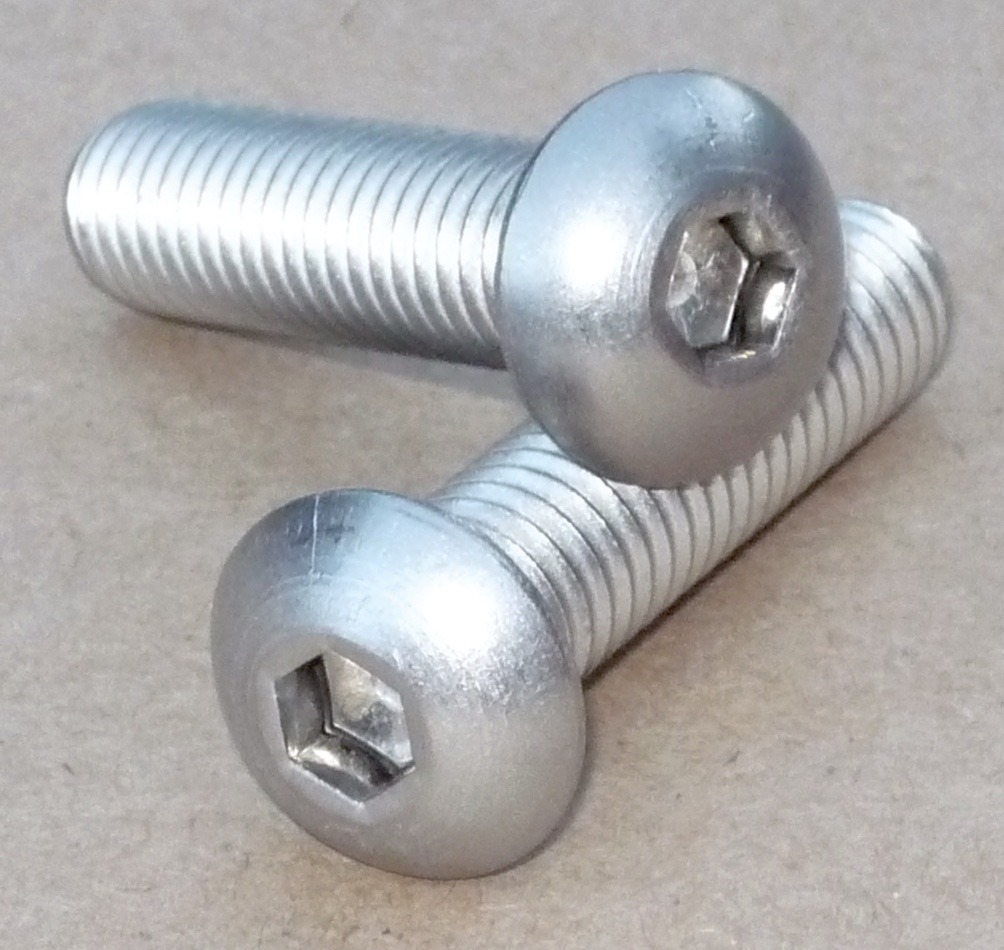
I’ve stripped more internal hex than all other types combined
The internal hex on sway bar end links are useless after any time in the salt. Last time I had to remove them I went straight to the angle grinder and ordered a new pair. Didn’t even attempt it.
We have to go deeper.
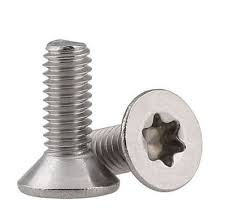
Yeah boi
I feel like a + shaped screw head would be as standard as a pyramid if multiple civilizations had developed screws independently. It wouldn’t be the last kind, but it would be there somewhere. Maybe even a long, long time ago.
There are at least 3 standards for the + shape already. Phillips, Pozidrive, and Japanese Industrial Standard (JIS). They do not play well together.
insert obligatory xkcd standards reference
Don’t forget Frearson/Reed & Prince!
But wait, there’s more!
And even more!
We only have standards so we can break’em.
JIS has been obsoleted and replaced in Japanese products with the ISO Phillips bit shape. It still exists on lots of products pre 2000 though.
Kawasaki is still holding on strong to JIS screws in it’s machinery.
That’s just galvanic corrosion from using cadmium plated bolts in aluminum fuel injection hardware. It’s basically free loctite.
Are you sure they’re JIS? Because JIS and ISO are interchangeable and effectively the same; the ISO adopted standard used most of JIS’s rules.
Yeah. I keep one of these around just for older Yamaha and newer Kawasaki equipment. You’ll end up drilling half of them out if you try to use #3 ISO.
I’m in the powersports/agricultural industry, so we tend to lag behind everyone else.
This bugs me so much more than it should. Why do we have three different standards for + shaped screws? You know what doesn’t have this problem? Flatheads. There’s exactly one way to make a flathead screwdriver, and I won’t be looking it up to make sure I’m right
I see that multiple people have replied, but unfortunately reading these comments would be a form of research so I must decline
Should the slot be partial or go all the way through? If partial, is that standard for the size of the screw, or universal?
How wide should the slot be? Should that change based on the size of the screw?
How deep should the slot be?
Should the sides of the slot be perfectly straight, or angled to perfectly fit the wedge shape of the driver? If angled, what angle?
Should the bottom of the slot be perfectly flat or slightly rounded so a coin or something could be used in a pinch? If rounded, what radius?
Should the top of the screw be perfectly flat, or domed, or raised?
Should the bottom of the head be flat, angled (at which angle), smooth, rough.
Should we use metric or freedom units for the thread pitch?
Should the threads go all the way to the head?
Should the point of the screw be flat or tapered (at what angle)?
Ok, only the first half of those were about the driver used, but I’m sure there are things I missed in that!
Their isn’t one way to make a flat head screwdriver. Some a chisel and some are slots. The slotted ones are better but more expensive.
Both still slip from the screw and are a pain to manually screw (slotted less so).
Pozi is the best + type screw. It’s pretty much standard for UK construction. The only time a different type is used is sometimes Phillips for plaster board or external hex and internal torx for long or large screws.
I think a single slotted screw head would be more universal and easy. You just cut one line into the top of the screw head and your ready to go. A Philips head would need to be cut twice and once you did, you’ve weakened the head one degree more by removing more material
You clearly haven’t had to screw a flathead screw.
Anyone that’s dicked around with those little bastards starts hating life after about thirty seconds. A fastener I can screw in a without having to be perfectly in line with the shaft? Yes please! I don’t care if it’s a shitty Phillips screw, sign me up. I’d even take those goofy square Canadian screws. Hell, anything is better than flathead.
I challenge you to find a screw worse to use than a flathead screw.
In my experience, Phillips heads strip more often than Robertson.
Torx > Hex > Robertson > Pozidriv > Phillips > Slot.
This is not (just) the ramblings of a mad nerd, but objective fact derived from contact area between screwdriver and screw.
In practice hex does have one situational advantage over Torx, namely that they are almost always tightened with Allen keys which are more torque-y and can be used in tight spaces. For every other application Torx wins. Every other head type is strictly inferior and only exists for legacy or penny-saving reasons.
What they don’t say is that the smaller the features on the contact, the easier it is to strip them. This almost reverses the order on your post depending on the way you tighten the screw.
For hex yes, for Torx no. Your smartphone’s itty bitty screws are quite possibly T4 or similar.
Torx is more resilient to over-torsion than Hex, but both of them will end near the end of the list on that one metric, with slot first, and way ahead of anything else.
Despite what the Torx publicity says, engineering is done over a multitude of dimensions, and that one dimension Torx wins may not be nearly as important as some other random one.
Ngl if I didn’t have impact drivers I’d probably hate Phillips screws a whole lot more
Obligatory ‘yo momma’.
I agree … and if I ever had the choice … I’d go with Robertson or Torx for all my screws
But we were talking about (I thought that is what we were talking about) is what common basic screw design would be common to appear in a world where no screws existed. A slot is simple and easy to make … just take a metal saw and cut one slot and voila you can turn it with a simple flat screwdriver head … simple to make, simple to reproduce … a pain in ass? yes? a universal torture device that will make your life miserable? yes?
But if we ever end up in a situation where we have no hardware stores, no manufactured supplies, no heavy machinery, no metal stamping equipment, no heavy duty presses then cutting a simple slot across the top of a threaded rod is the easiest way to make your own screwhead and start working with using your own homemade screw driver … a pain in the ass? yes … but at least you can screw things together after the world has ended.
How tf can hyperdrive exist but screws haven’t been invented lol
I think the real issue is that prop design has fallen so far from the ILM heyday. Now it’s best described as follows:
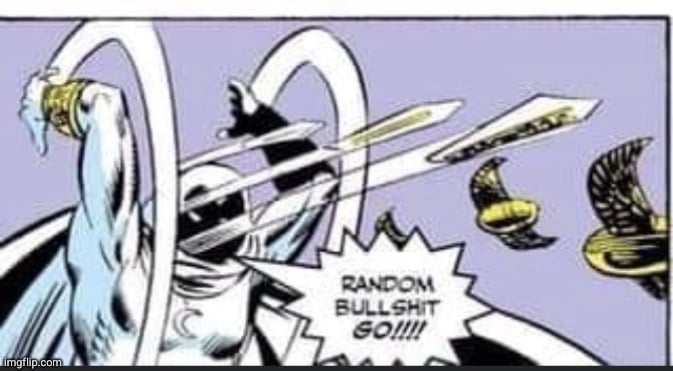
This probably doesn’t exist but is probably worse the a flat head. What about a friction screw where the top is like rubber and to unscrew you need to rotated using a driver with another flat rubber head
So ironically I’ve used a rubber band similar to what you describe to break free and remove screws on several occasions. It’s not fool proof but worth a shot to avoid drilling and tapping.
Pics or it didn’t happen
(lol just kidding. what you’re describing is almost as bad as unscrewing a security flathead screw. look it up. invented by Satan, with help from Brian Thompson)
Easiest to manufacture tho (probably, I’m not an expert. But if you were to make a fastener with rudimentary tools, Phillips seems like it would likely be the easiest.)
Easiest, yes. And wheels are easier than repulserlifts. If sometime said “Ya know, greasing axels sucks balls. Let’s invent something better”, they probably developed something better than the shittiest screw head in the history of sentience.
But that’s just, like, my opinion man
Ohhh no… As a person who regularly builds random shit for film and television, the single slotted screw is the bane of my bloody existence. Some designers fucking love em for the aesthetic but the cam outs on them are terrible. Is it technically easier to produce? Yes, is it viable to use for construction purposes comparitively - fuck no. Every time you cam out ( lose traction on the screw) you risk accidentally damaging whatever medium you are screwing into.
Locally there is an insane institutional preference for the Robertson screw (which is basically a square) because it doesn’t cam out much, drives in well and arguably resists stripping better than a Phillips… This is believed in so much that any screw not seen by the camera is a Robby (usually size 2) while anything that is perceived by the audience is a phillips or a single slot screw. Given a choice nobody wants to handle single slots and chances are good you only find them in period specific builds or when the designer is a psychopath.
The only thing slotted was good for was on old ships. When water grime built up on them they were easy to scrape out with your screwdriver and use the screw. That is THE ONLY good thing about slotted screws. If they get full of shit it’s easy to clean out. Other than that they fucking suck in every other way.
☝️ this dude screws
Slotted screws are the proof that Satan is real.
Absolutely the only benefit to slot headed screws is how easy they are to make, which is why they’re what a home machinist would make when creating his own fasteners, and why any aliens out there that use threaded fasteners have probably also tried and learned to hate them.
Most other shapes of driver aren’t cut, they’re stamped.
I have never seen a crosshead screw cut out to the edges…
Neither have I but we were talking about how to make a basic screw without needing to forge or stamp or manufacture screws … if you ever had to make a screw yourself, you take a hack saw and cut a slot in the screw head … then a second cut crossing the first to make the (+) shape
Disappointed that the first comment isn’t, “May the Torx be with you”
That may have been the actual post title I was looking for.
These aren’t the post titles you’re looking for… 👋
I changed it after the fact but I went with torque instead of Torx because it seemed to make more sense. IYKYK.
Nah, I was just kiddin’!
This was a great post and fun to comment with
Thanks. Most of my memes are stolen but as long as I manage to bring a smile to a few faces each day, it’s worth it.
Thought it was gonna be the Phillip’s head strip
Even in a galaxy far far away everything is still made in china
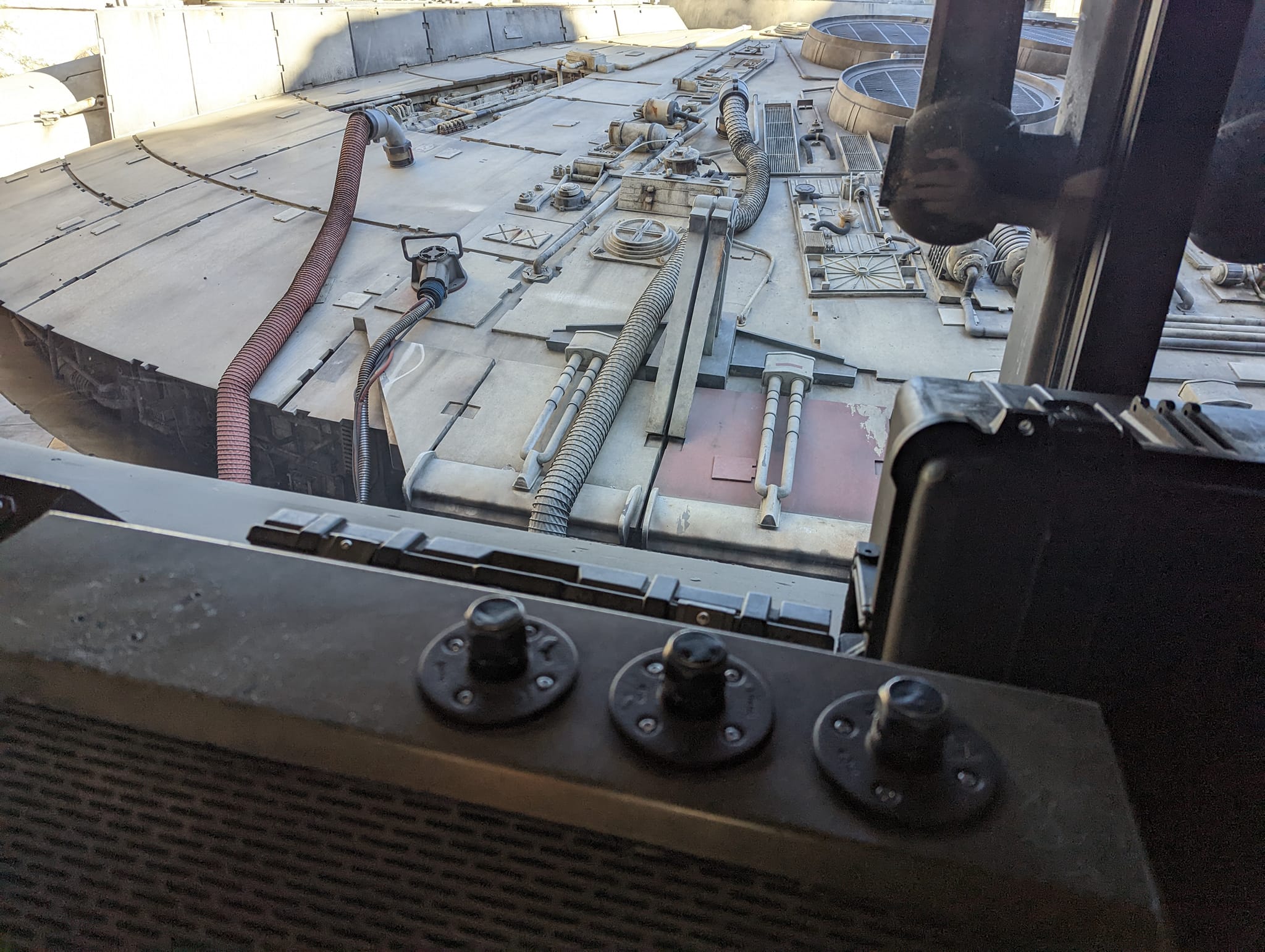
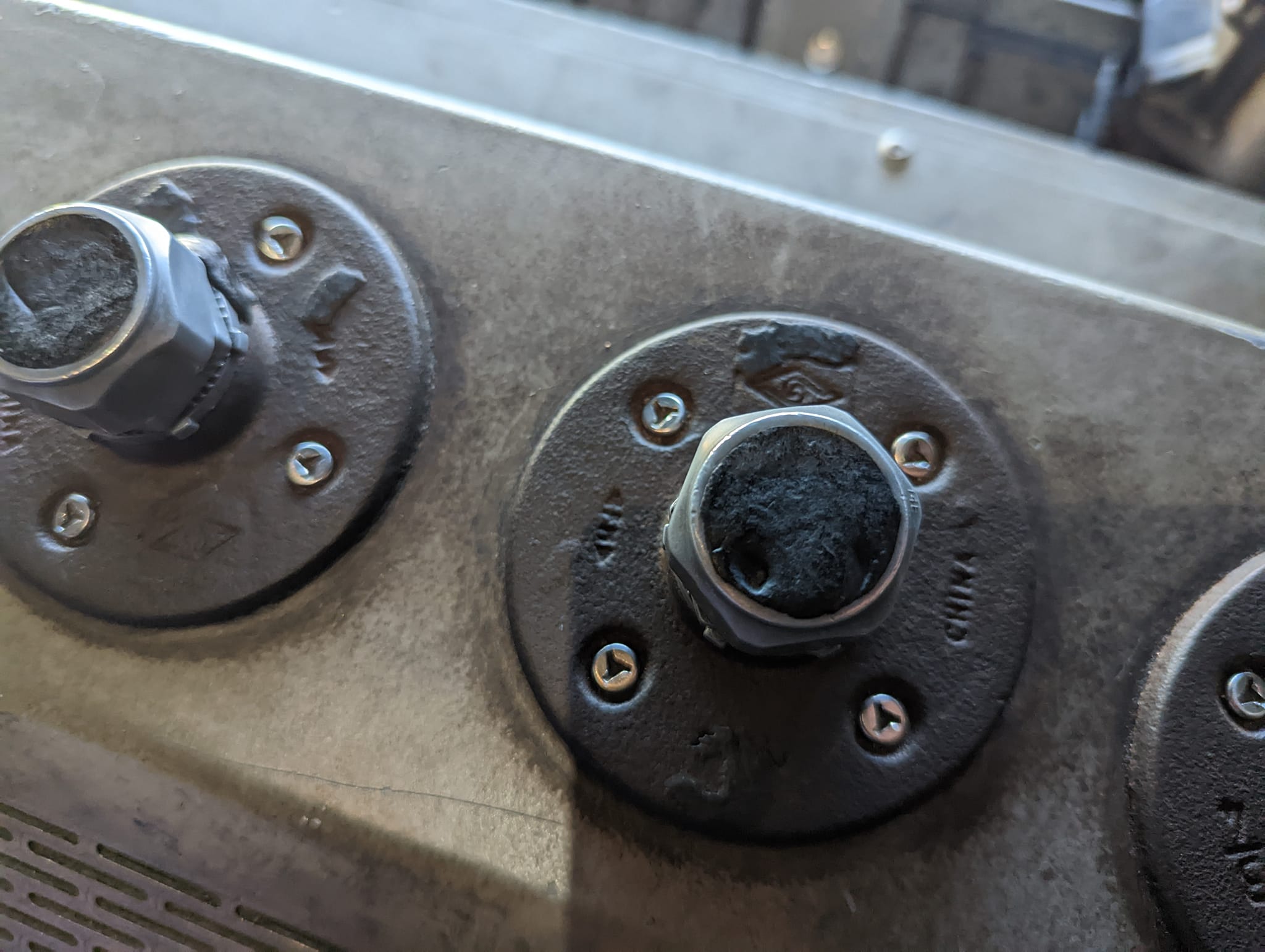
Edit: at least they didn’t use Phillips screws
Can’t get more spacey screws than those. They basically look like galaxies
That’s because they were worried someone would have taken them off.
Turns out the laws of physics and geometry are the same everywhere.
Even in fictional universes that have wizards in space with swords made of light?
Yes!
Then why would they end up with philips instead of torx?
They get sick pleasure from inflicting stupid fastener design on their users?
Hey, if it works it works.
It works, but badly. All my homies hate cam-out and love torx.
It works great for it’s intended purpose which is torque limiting.
Correct. The original patent makes no reference to any sort of cam out / torque limiting feature.
Well, limiting torque but killing itself and becoming extremely hard to remove is terrible design lol
Can we all agree that flathead should be outlawed and Phillips needs to get phased out with a quickness
Why are there so many fasteners 8min : https://youtu.be/5cA9bZRHpZE
Officially, “flathead” refers to countersunk screws. Slotted screws are terrible for my purposes, but they actually do have 1 advantage. If they get mud or something caked up in the slot it’s relatively easy to use a knife or some other pointy thing to clean it out. Guns and other things used in dirty environments often use slotted fasteners for that reason.
Yeah it also really difficult to strip a Flathead slot.
But it can be done! https://media.tenor.com/3dnzk_8PqwoAAAAM/dumb-and-dumber-jim-carrey.gif
Right, field maintenance, especially when you don’t have access to tools is a bit of an exception. Personally I think using take down pins for guns is the way to go for field maintenance anyway.
Wait what should the standard be?
Torx.
Googles it.
Omg, it has 6 sides, that means it’s bestagon
You know! ❤️
I don’t think I had ever actually seen a torx screw head until this conversation lol
If you have an iPhone, you can see two tiny torx screws on the bottom by the lightning/USB-C port
Seems to be common on furniture that you’re supposed to assemble and rearrange, such as convertible crib/beds. One of my kids’ cribs was brand new and the other we got at a garage sale and would be from 2003 or so, and both use torx for this reason
Square (Robertson) and/or torx depending on application. Square should be for everyday things and torx should be for anything mechanical, yes I know there is a big gray area in the middle there, but flat head, phillips, and hex need to go.
Honest question, why not torx across the board? What do square do well that’s not covered by torx?
Robertson is tapered, so you just have to hit the hole somewhat and it’ll guide itself in real easy. Torx is fickle to line up and orientate.
The way I see it, anything with a square bit can be done by with a hand held screw driver, and anything with a torx bit should probably be torqued to a certain amount and/or be used with a screw gun. Square/Robertson bits are used super often in things like electrical panels and electronics. They are becoming pretty common for cabinetry also. I doubt you’ll see a torx screw in cabinets.
Thank you for replying. Robertson screws are not common in Scandinavia - at least I’ve never seen one IRL. I use torx for everything, never had an issue with hand screwing them, which is why I asked. But I’m not an expert or professional, just a home owner that tries to DIY as much as I can.
Not having to deal with stripped screws is the biggest plus for me, I hate having to remove a Philips or flathead screw that someone else put in some hard-to-reach location that can’t be turned without breaking. (Which happens surprisingly often, actually.)
Lol absolutely, stripped screws are the worst
I think it’s slightly more expensive to machine?
Amen, brother!
I’d say cross/slit in tiny, torx in small to big screws.
I have never in my life seen such a screw. Hexagon is the shit here, when it isnt Phillips. Maybe coming from Ikea, I don’t know. Is this format a (popular) US thing?
Ya Ikea standardized on hex because it’s cheap to mass produce. It definitely strips though.
Torx has slowly been gaining popularity in the US for a decade or two now, but sadly Phillips is still pretty popular and hex is pretty common also, you will see the square/Robertson screws a lot in electrical panels and in cabinetry but not super common at the hardware store.
Torx for anything that needs to be torqued or used with power tools, Robertson (square) for anything intended to be used with hand tools or more finer work (a screwdriver)
I don’t get the problem with flathead, for household applications it seems the most superior because I can use literally anything in my house to drive the screw (butter knife, credit card, a housekey)
plus almost every size of flathead screwdriver can fit in almost every size of flathead screw.
You can use everything, but everything works badly. Even a fitting screwdriver will just randomly jump out after half a turn and scratch whatever you’re working on.
No offense, but you haven’t unscrewed/screwed enough slot screws if you don’t see why they’re worse in every way. The criteria for a good screw isn’t that you don’t have to have the correct tool. The bits are $0.99!
I unscrew a single screw and whether it’s a light switch or an electronic device, I’m already annoyed. Even if you use a flathead screwdriver that fits perfectly, it will un-center and slip out, whether you use a hand bit/screw driver or a drill.
Um, actually, those are rigid kal’dron adjustment pins used to correct focus crystal orientation.
Ironically enough other standards appeared because of the need of more torque.
That’s the joke
Somehow, Phillips head survived.
Preventing cam-out with a Phillips screw is like learning the ways of the Force. It takes patience and skill, something the Empire’s rigid Torx would never understand.
Bet it’s an inch screw too
No wonder the Jedi failed.
You’d think that they would have switched to Pozidriv.
Why? Torx is better in every way. If you are going to change, why half ass it to Phillips 2.0
Backwards compatibility
Pozidriv is intentionally not backwards compatible, and one of the biggest problems it has is looking enough like Phillips that people assume it must be compatible, use a mismatched screw and driver, and strip a head.
Which is why it sucks. I go to work and I see a cross cut, I’m going to use my Phillips head of appropriate size to pull it out or put it in. Does pozidrive have any indication it’s not Phillips? I’ve honestly never seen one. I might be working on brand new stuff or 60 year old stuff.
I don’t have any pozidrive bits but I have two sets of long torx, some double sided torx for my hand driver, and a bunch of little torx bits in my bag to hand out to the kid that came to his first day of work with nothing but a #2 Phillips.
Yes, the head is visually distinctive from Phillips, with four smaller cuts in between the main ones.
Good to know if I ever see one.
I think it’s pretty likely that you’ve seen loads and never known they were different. The difference is small enough that you wouldn’t realise it was significant until you were told:

You’re right - Torx is definitely a better option. I just mentioned Pozidriv because people seem to love Phillips head so much for whatever reason, so Pozidriv seems like a logical increment from there.
(@Dan not shitting on you, i just really hate Phillips)
Next logical increment… Gotta say ain’t nothing logical about Phillips/posidrive bullshit,
Robertson drive was around when Henry Ford decided to use Phillips on his cars. Robertson was more expensive to licence the patents(Phillips was cheap cause people thought it was shit)
God damned Nazis fucking everything up(Ford was a Nazi(ish) and a real piece of shit). Maximizing profits over everything else screws everything up as we are seeing right now, but sometimes it doesn’t just fuck up the here and now, but like Phillips, it just keeps fucking everything up for more than 100 years.
“Let’s make a drive that has an angle to it so that it will strip out super easily and destroy the fastener(don’t tell me Phillips is great because it limits torque, it doesn’t without destroying the head so bad you might not be able to remove it)” said no good engineer ever.
TIL



























